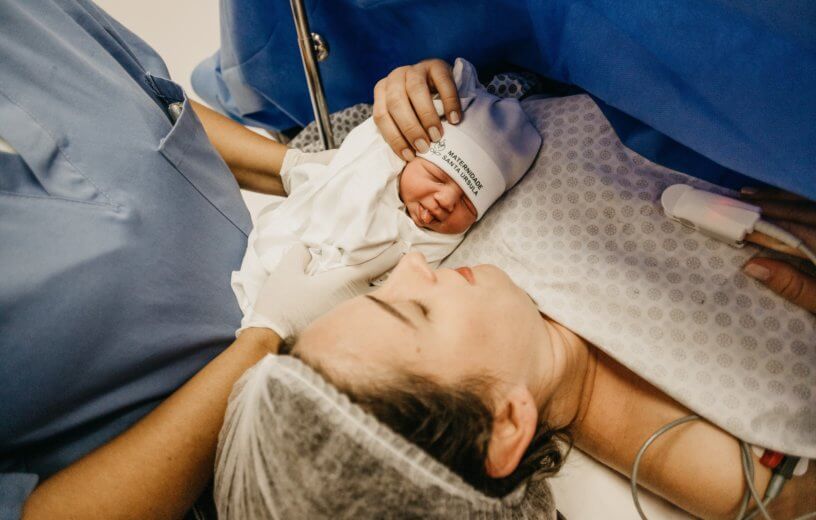BRISTOL, England — Sexual pleasure and enjoyment in the years following childbirth are unaffected by the way in which the baby is born (vaginal or C-section), according to new joint research from the University of Bristol and Karolinska Institutet in Sweden. This longitudinal study included over 14,000 women.
Many assume caesarean sections are a better way to maintain sexual wellbeing while giving childbirth, due to the much lower risk of vaginal tearing and the maintenance of vaginal tone. Prior studies, however, suggest there are few differences in sexual outcomes between women who had caesarean sections or vaginal deliveries by six-months post childbirth.
Importantly, this is one of the first studies to track post-birth sexual outcomes for a period beyond just a half year. Study authors worked to investigate the relationship between mode of delivery and sexual wellbeing outcomes. On a broader scale, the analysis considered such factors as sexual frequency, sexual enjoyment, and sex related pain among new mothers at a variety of points in time post-birth.
Participants were assessed up to 18 years post-birth, with researchers noting no difference between caesarean section and vaginal delivery when it came to both sexual enjoyment or frequency at any point in time following childbirth (postpartum). Notably, though, women who gave birth via C-section were deemed more likely to experience sex-related pain at 11 years postpartum – more specifically vaginal pain during intercourse.
It’s worth noting that researchers did not have access to prenatal (before birth) sex-related pain measures for each mother. So, the study can’t say whether C-sections actively cause sex-related pain or if sex-related pain before birth predicts both caesarean section and postnatal sex-related pain.
“Rates of caesarean section have been rising over the last 20 years due to many contributing factors and importantly, it has been suggested that caesarean section maintains sexual wellbeing compared to vaginal delivery. It is crucial that a whole range of maternal and fetal outcomes following caesarean section are investigated, including sexual wellbeing, to appropriately inform decision-making both pre- and postnatally,” says lead study author Flo Martin, Wellcome Trust PhD Student in Epidemiology in Bristol Medical School: Population Health Sciences (PHS) at the University of Bristol, in a statement.
“This research provides expectant mothers, as well as women who have given birth, with really important information and demonstrates that there was no difference in sexual enjoyment or sexual frequency at any timepoint postpartum between women who gave birth via caesarean section and those who delivered vaginally. It also suggests that a caesarean section may not help protect against sexual dysfunction, as previously thought, where sex-related pain was higher among women who gave birth via caesarean section more than 10 years postpartum,” she continues.
“It is through longitudinal studies like Children of the 90s, that researchers can provide evidence to help expectant mothers’ make well informed decisions about their preferred choice of delivery in uncomplicated pregnancies, and to support women postnatally if choice was not an option for them in the delivery suite,” concludes Lynn Molloy, Chief Operating Officer at Children of the 90s.
The study is published in BJOG An International Journal of Obstetrics & Gynaecology.

Thank you for providing the great information about vaginal delivery nor C-section!